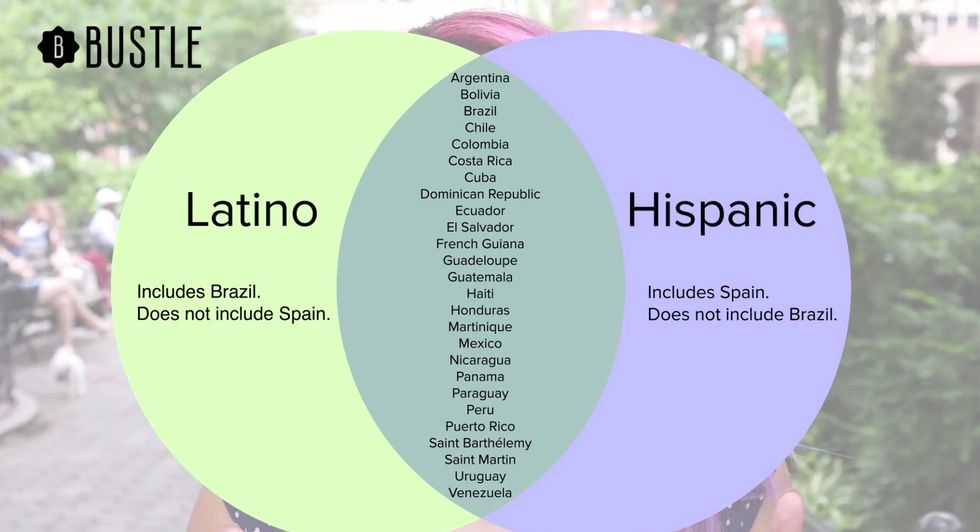Latinos/Latinas tend to have a hard time choosing the proper term to identify with. Growing up, we use terms such as “Latino”, “Hispanic”, and “Spanish” interchangeably without knowing their differences or origins. We have failed to realize that these terms are either one more inclusive or a production of colonialism and oppression. Although we can tear into the pros and cons and historical points of each word (none are without a tinge of colonialism, by the way) deciding to use the term “Hispanic” over the term “Latino/a.” It's best to start with the basics.
First and foremost, Latinos shouldn’t choose to be identify with term “Spanish.” You may ask yourselves why if Latinos speak Spanish. For starters, “Spanish” is a language. Last, you only refer to someone as “Spanish” if they were born in Spain. The term Spanish should only and only be used to identify two things: the language or a descendant of Spain.
The term “Hispanic” is a term produced by the U.S. government in the 1970 Census. The term can be used to identify a Spanish-speaking person. Thus, this makes the terms “Hispanic” and “Spanish” almost alike. The term “Hispanic” includes Spain and any Latin American country whose primarily language is Spanish. It is use to identify people, nations, and cultures that have historical links to Spain. Furthermore, the term it’s not based on geography. This probably makes you think about Brazil. Why aren’t they called “Hispanic” when they are in Latin America? Yes, Brazil is in Latin America (in fact it’s a big country compare to other in Latin America) but their official language is Portuguese. Now, this disqualifies them to be called Hispanics. Let’s recall the term “Hispanic” is use to identify a Spanish-speaking person.
Now, “Latino” is a term used for people with cultural ties to Latin America. It takes more focused look at the geographical context of an area. The term “Latino” should be used to identify a group with ties to Latin America regardless of race or gender. Brazilians are included in this category because they are in what is considered Latin America. Spaniards are not included in this category because Spain is in Europe—not Latin America. This means that people from Caribbean islands are considered Latino because they also are in the same geographical region.
Have I confused you enough? No? Well, I am about to make it worse. Let’s welcome, the term “Latinx.”
“Latinx” is a gender-neutral term that strips the masculinity of the term “Latino.” The importance of owning the term Latinx is extremely significant. The term was remixed as a form of identity that is all-inclusive in a social climate in which autonomy and self-definition is more and more critical. Self-identity, after all, is nothing short of empowering.
By now you are thinking, “They are simply labels. Why does it matter?” Well, this is important for everyone to understand and be somewhat aware of the words they use to describe groups of people. Some may not like labels, but others are proud of the significance of each label. In a country as diverse as America it is important to respect and value everyone for their differences, background, and culture. So, next time thinking before you call someone Hispanic or Latino.




















